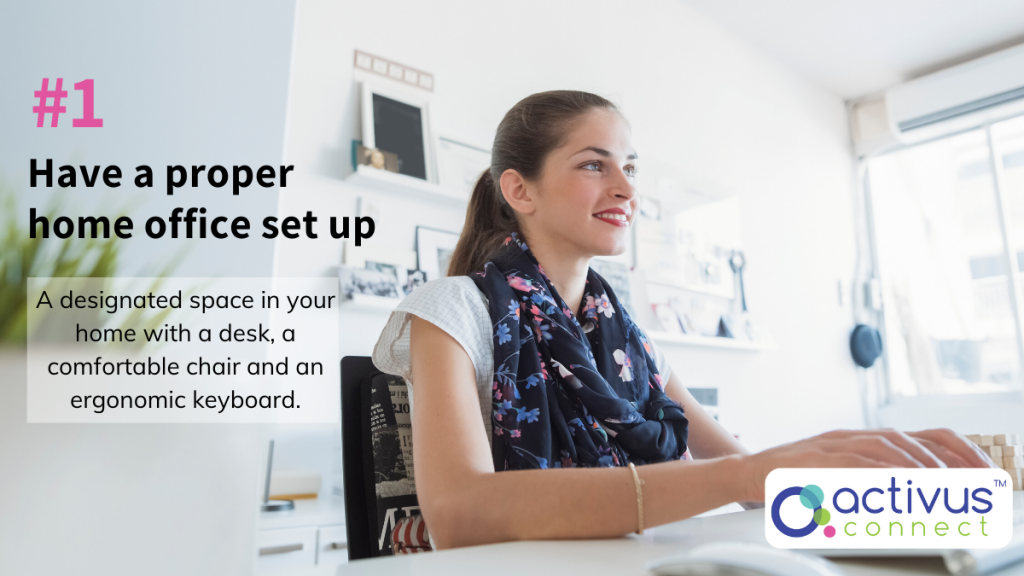
Working from home is fast becoming the new normal for people facing Coronavirus lockdowns around the world, presenting significant challenges for traditional, office-based companies that are forced to adapt.
There is good news: research shows that flexibility around home working initiatives results in increased productivity, happier workers, and all the associated organizational benefits.
The American Sociological Association conducted a study on workers at a Fortune 500 company to determine how work flexibility impacts job satisfaction, employee burnout, and psychological stress. The results were definitive, according to Phyllis Moen, one of the researchers behind the study.
“Our research demonstrates that workers who are allowed to have a voice in the hours and location of their work not only feel better about their jobs but also less conflicted about their work-to-family balance,” she said in a press release. “Crucially, these workers are also more efficient and more productive on the job. In other words, workplace flexibility is beneficial—not detrimental—to organizations.”
To help organizations materialize these benefits, the following tips offer some simple, practical changes that workers should apply to their remote work environments, which will quickly result in elevated home-based productivity.
Establish A Dedicated Home Office Space

While the tendency to work from the couch in a pair of sweats is alluring, it’s also an instant productivity killer. Dedicated home office spaces are essential when working remotely as they limit distractions and provide a similar environment to a regular office, helping to maintain a vital work routine.
Ideally, a home-based workstation needs a desk and a comfortable chair with easy access to power supplies and a router. Adding an ergonomic keyboard and mouse, a standing desk option, and a second monitor to the setup can really help to stay focused, reduce stress, and maintain good posture.
At the very least, it’s important to work from a room with a closable door to prevent general distractions and interruptions during conference calls or customer interactions.
Ensure the Room Has Proper Lighting

Workplace lighting has a huge impact on how people work and how they feel. Good lighting can improve mood, energy, alertness, and productivity, while improper lighting can have the opposite effects.
In a study conducted by the American Society of Interior Design, 68% of employees reported issues with the lighting situation in their offices, which should be a wake-up call for companies looking to increase employee satisfaction.
Now that home working is essential for many employees, it’s important to work in well-lit environments by making a few changes to the home office. Sunlight is a great starting point, so try to get set up in a room with lots of natural light. If that’s not an option, there are several sunlight lamps available to simulate natural light, while also having positive impacts on seasonal affective disorder and depression.
The minimum setup should include overhead lighting and an optional desk lamp to help simulate a traditional office environment—it’s the little touches that make all the difference.
Maintain A Clutter-Free Environment

Once the home office is set up and the room is well lit, it’s time to get decluttering—get rid of those stacks of papers, loose stationery, empty food containers, and tangled cables as they have significant negative impacts on productivity.
Research shows that messy workplaces could actually be bad for your brain, revealing steeper rates of cognitive decline in untidy workers when compared to their more organized counterparts. Overall, clutter-free environments help reduce stress, increase focus, and spark innovation, which in turn, helps improve productivity and performance.
Start by removing everything from the desk, wiping it down, and only returning the items that are essential for the job, like the computer, monitor, webcam, keyboard, and mouse. Keep things like business cards, batteries, or loose change in a drawer somewhere and assign a specific place for any important documents that you might need.
Additional furniture such as shelves, file cabinets, and stationery holders also helps free up important desk real estate, while under-desk cable tidies keep messy wires out of sight. Ultimately, minimalism is the answer to avoiding drops in productivity.
Invest in an Uninterrupted Power Supply

One of the biggest concerns over work-at-home initiatives is that communication and seamless collaboration are at the mercy of the employee’s power supply and internet connection. A great way to eliminate most of that risk is with an uninterrupted power supply (UPS), which can keep computers and internet routers operational during unexpected power outages.
—
To find out more about how Activus Connect maximizes productivity in a virtual environment, contact us and ask how our SmartVirtual™ approach is elevating customer experiences.